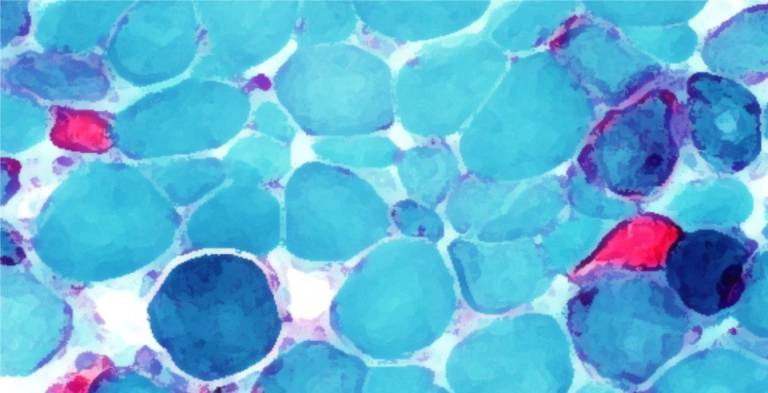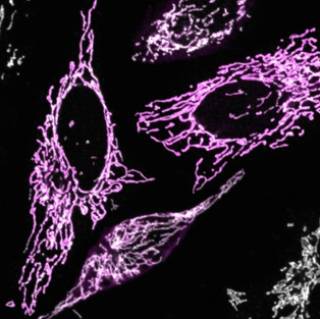£7.5million research centre to unlock new tests and treatments for mitochondrial diseases
23 April 2024
A new research centre co-led by UCL scientists in the Faculty of Brain Sciences will help thousands of people living with mitochondrial diseases to get access to improved diagnostics, treatments and potentially cures.

The LifeArc Centre for Rare Mitochondrial Diseases is a national partnership with the Lily Foundation and Muscular Dystrophy UK. It will be led by Professor Patrick Chinnery (University of Cambridge and Cambridge University Hospitals NHS Trust) with co-lead Professor Michael Hanna (UCL Queen Square Institute of Neurology and UCLH NHS Trust National Hospital for Neurology and Neurosurgery), and colleagues at Newcastle University and three other centres in Oxford, Birmingham and Manchester.
Professor Michael Hanna UCL-lead said:“ Since the original discovery at Queen Square in 1988 that mutations in mitochondrial DNA can cause human disease we have pursued a strong multidisciplinary research programme to determine disease mechanisms and advance treatment opportunities. Crucially, our work is centred around patients and in London we lead the NHS England national highly specialised service for mitochondrial diseases."
Professor Robert Pitceathly (UCL Queen Square Institute of Neurology), who will co-lead at UCL, said: “This new funding to establish a national translational centre is a major development and will enable our science to be translated into new biomarkers, clinical trials and ultimately treatments. A strong training component will allow us to train the next generation of researchers.”
Professor Alan Thompson Dean Faculty of Brain Sciences said: “ I am delighted to congratulate Professors Hanna and Pitceathly and the UCL team for securing this major collaborative award. It builds on a strong foundation of excellent genetic and neuroscience research that the new Life-Arc Centre will help translate into trials and ultimately treatments to benefit patients and families globally.”
Globally, there are more than 300 million people living with rare diseases. However, rare disease research can be fragmented. Currently researchers can lack access to specialist facilities, as well as advice on regulation, trial designs, preclinical regulatory requirements, and translational project management, which are vital in getting new innovations to patients. The new national Life Arc centre for mitochondrial disease will address this.
Adam Harraway has Mitochondrial Disease and says he lives in constant fear of what might go wrong next with his condition. He says: “With rare diseases such as these, it can feel like the questions always outweigh the answers. The news of this investment from LifeArc fills me with hope for the future. To know that there are so many wonderful people and organisations working towards treatments and cures makes me feel seen and heard. It gives a voice to people who often have to suffer in silence, and I'm excited to see how this project can help Mito patients in the future."
The new LifeArc Centre for Rare Mitochondrial Diseases is one of four new centres to be funded by the medical charity, LifeArc, with the aim of overcoming these barriers that ordinarily prevent new tests and treatments reaching patients.
Dr Catriona Crombie, Head of Rare Disease at LifeArc, says: “We’re extremely proud to be launching four new LifeArc Translational Centres for Rare Diseases. Each centre has been awarded funding because it holds real promise for delivering change for people living with rare diseases. These centres also have the potential to create a blueprint for accelerating improvements across other disease areas, including common diseases.”
The LifeArc Centre for Rare Mitochondrial Diseases, along with the LifeArc Centre for Rare Kidney Diseases, LifeArc Centre for Rare Respiratory Diseases and the LifeArc Centre for Acceleration of Rare Disease Trials have been awarded a share of nearly £40M over five years.
Links
- Professor Michael Hanna's academic profile
- Professor Robert Pitceathly's academic profile
- LifeArc
- Lily Foundation
- Muscular Dystrophy UK
 Close
Close


